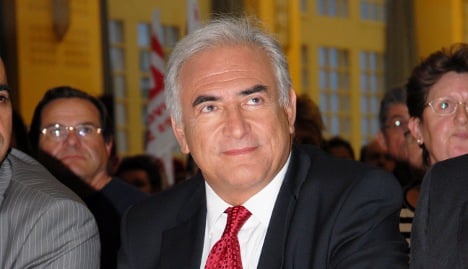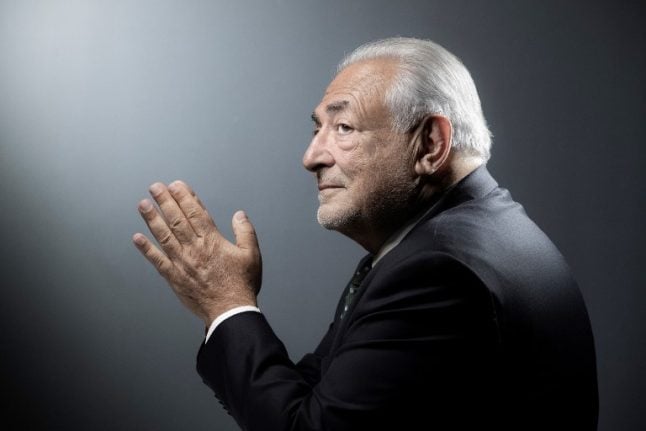Le Monde is reporting that the 63-year-old French politician will pay hotel maid Nafissatou Diallo a whopping $6 million to settle her lawsuit.
The newspaper says in its Saturday edition that Strauss-Kahn has told friends he will pay that amount to bring the affair to an end.
This follows a report from the New York Times, quoting unidentified sources "with knowledge of the matter," that the pair have "quietly reached an agreement to settle" her lawsuit.
The newspaper added that "no settlement had yet been signed."
NBC television also reported the possible deal, confirming that it had yet to be completed.
Judge Douglas McKeon, who is presiding over the civil case, told AFP "there may be a court session as early as next week," but declined to comment on the reports of a settlement.
Diallo's lawyers did not immediately respond to an interview request, while a spokeswoman for Strauss-Kahn's legal team declined to comment.
Strauss-Kahn, who had been widely touted as a likely challenger to then president Nicolas Sarkozy, suffered a stunning fall from grace following his arrest at a New York hotel last year on sex assault charges.
He then faced a string of separate sex-related investigations in France.
Diallo had sued Strauss-Kahn in New York civil court after prosecutors threw out assault charges filed against the globe-trotting politician, saying the maid's sex assault case would not stand up before a jury.
Although Strauss-Kahn has since been mired in legal troubles and brought low by the repeated tarnishing of his once stellar reputation, that initial downfall at a posh Manhattan hotel in May 2011 came as a shocking surprise.
At the time, Strauss-Kahn was jetting between world capitals as head of the International Monetary Fund and was expected to announce what would have been a formidable candidacy for the French presidency.
Diallo, a maid at the Sofitel hotel, shattered that trajectory when she alleged the powerful politician had leapt on her in his room, naked, and
forced her to perform oral sex on him.
Strauss-Kahn was arrested as he was about to take a flight back to Europe.
He later conceded that there had been a sexual encounter in the hotel room with the cleaner, but insisted that it had been consensual.
The subsequent court proceedings and a brief spell in New York's tough Rikers Island detention center publicly humiliated Strauss-Kahn.
Then it was the turn of the Manhattan District Attorney's office to face embarrassment as they admitted that their case was falling part, with Diallo having been caught lying over several points.
Charges were dropped and Strauss-Kahn left hurriedly for France, where his new bout of legal problems was about to begin.
His lawyers have repeatedly said they would not agree to a deal to pay off Diallo, branding her a gold-digger.
Diallo's lawyers have equally often insisted that they only want their day in court to confront Strauss-Kahn.
Already having left US territory, Strauss-Kahn tried to get off the hook by claiming diplomatic immunity in the civil case.
However a judge rejected that move in May.



 Please whitelist us to continue reading.
Please whitelist us to continue reading.
Member comments